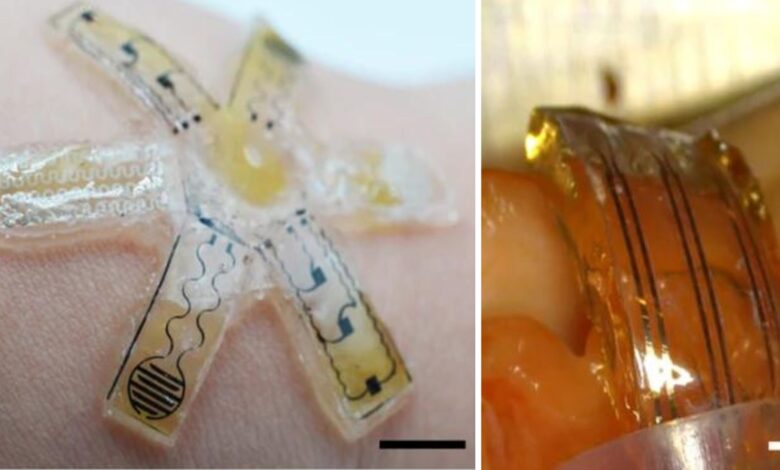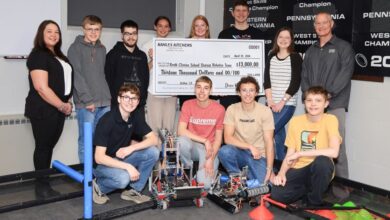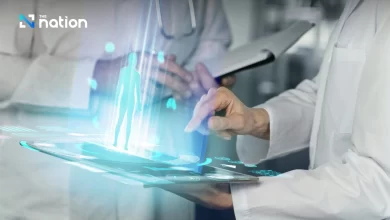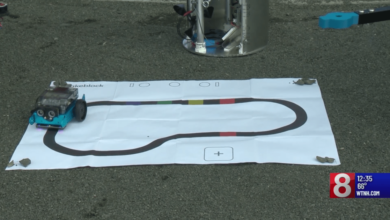Soft robot transformers bend, expand, twist to deliver meds inside body

Researchers have used artificial muscles and electronic skins to create advanced soft robots that can detect their environment and change course in real time.
A University of North Carolina at Chapel Hill team has developed robots designed to mimic animal muscles and skin interaction. It enhances their effectiveness and safety for use inside the body.
“These soft robots can perform a variety of well-controlled movements, including bending, expanding, and twisting inside biological environments,” said Lin Zhang, first author of the paper and a postdoctoral fellow in the University’s Department of Applied Physical Sciences, in a statement.
Next-gen implant robotics
Creating bio-inspired soft robots as implants promises major advancements in medical technology, especially for surgery, diagnosis, drug delivery, prosthetics, artificial organs, and rehabilitation tools.
These soft robotic implants, designed to change shape and function like biological tissues, can match the softness of tissues, provide therapeutic treatments, and offer real-time monitoring.
These implants enhance diagnostic and therapeutic precision by integrating sensing and actuation, potentially functioning as artificial organs. However, despite progress, researchers say material design and manufacturing challenges remain to ensure tissue compatibility, safety, and functionality.
Aiming to address such challenges, the researchers’ new designs are inspired by nature. Their soft robots have two key layers: an electronic skin (e-skin) made from functional nanocomposites and an artificial muscle using a Poly(N-isopropyl acrylamide) or PNIPAM hydrogel. The e-skin detects touch, pressure, temperature, and chemicals, while the hydrogel muscle can contract and relax.
These robots can bend, expand, and twist. They can move, sense, and communicate wirelessly, allowing minimally invasive operations inside the body. Their design mimics skin and muscles, making them highly effective and versatile.
Researchers claim their gentle attachment to tissues makes them less likely to cause stress and harm. Motivated by organic forms such as seedpods and starfish, they can modify their architecture to execute various functions effectively.
Synergistic soft implants
The team’s designs include a bladder-wrapping robot for bladder control, a blood vessel cuff for flow measurement, an ingestible robot for stomach monitoring, and a heart-grasping robot for epicardial sensing and stimulation.
The devices can continuously monitor internal conditions like blood pressure and bladder volume; they can be swallowed to monitor and treat conditions in the stomach; they can change shape to fit organs for better sensing and treatment; and they can provide treatments like electrical stimulation based on real-time data.
The team’s thera-gripper, an ingestible robot, monitors stomach pH levels and delivers drugs over time, enhancing gastrointestinal treatment. It can also attach to the heart, monitoring electrophysiological activity, measuring contractions, and providing electrical stimulation to regulate heart rhythm.
A robotic bladder gripper measures volume and provides electrical stimulation for overactive bladders, improving patient care. Additionally, a robotic cuff wraps around blood vessels to accurately measure blood pressure in real-time, offering a precise, noninvasive monitoring solution.
“Tests on mice have demonstrated the thera-gripper’s capability to perform these functions effectively, showcasing its potential as a next-generation cardiac implant,” said Zhang in the press statement.
The team claims that positive results open the scope of medical devices and highlight future potential in the synergy between soft implantable robots and biological tissues.
“We’re aiming for long-term biocompatibility and stability in dynamic physiological environments,” said Wubin Bai, the research’s principal investigator and an assistant professor at the University.
The details of the team’s research were published in the journal Nature Communications.
ABOUT THE EDITOR
Jijo Malayil Jijo is an automotive and business journalist based in India. Armed with a BA in History (Honors) from St. Stephen’s College, Delhi University, and a PG diploma in Journalism from the Indian Institute of Mass Communication, Delhi, he has worked for news agencies, national newspapers, and automotive magazines. In his spare time, he likes to go off-roading, engage in political discourse, travel, and teach languages.



